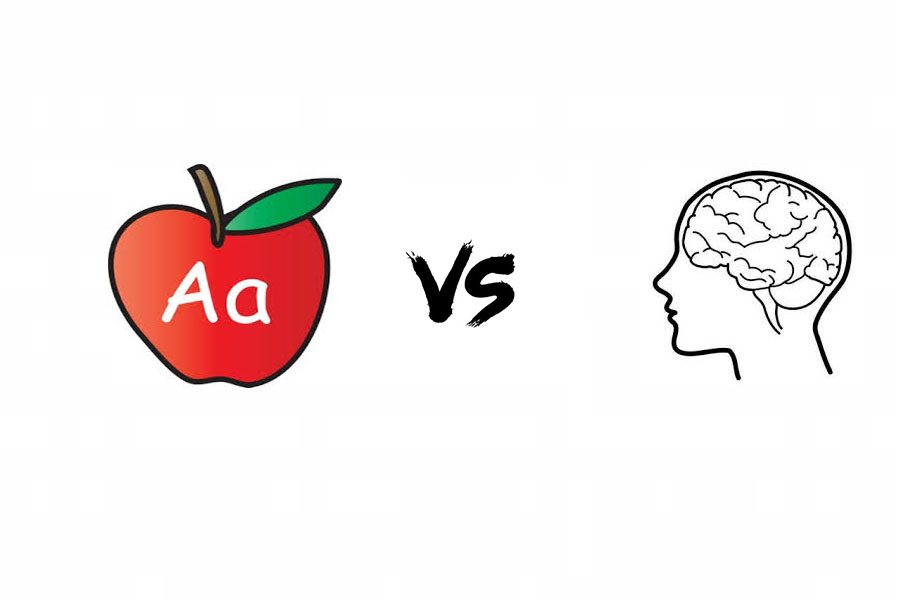Is School An “A” Game
It is the eighth period of the day and you are drained from the endless work you received from the seven periods prior. You try to cram in everything you can from the lesson that the teacher is teaching, only to throw it up on the test the next day, not even remembering the information that you were taught. You finally get that precious “A” that you, your parents, teachers, and the school administration love seeing. If that situation sounds familiar, you’re not alone. According to quora.com, 50.1 million other teenagers are in the same boat.
In order to test this, I interviewed five current Alliance High School students and asked them one question: if their main focus was learning the material that was being taught, or if it was collecting as many A’s as possible and why? I also interviewed one former Alliance High School Student and asked them if learning the material or getting A’s, was more important to get into college.
Sophomore, Ania Mendez, said “Sure, most people care about their grades, but knowing the material that is being taught is the most important thing to me because you can use that knowledge later on in life.” Senior, Brionna Schafer, said “Oh, for sure getting an A because you can’t get good scholarships without good grades.” Junior, Brooke Davidson, said “I don’t want to admit it, because it should be about learning, but I would definitely have to say I focus more on my letter grades.”
Another senior, Joel Baker, said “Getting A’s, because if I don’t like a subject then I think it’s just easier for me to focus on getting an A.” Freshmen, Kysen Walker, said “Getting A’s, because colleges won’t look at anything if you don’t have good grades.” Finally former AHS student, Chandler Stinson, said, “Well it’s good to learn material so you’re a step ahead in college! But good grades also get you into college!”
Throughout the school year it appears to students that teachers are more focused on telling their students to memorize the material because it’ll be on the test or the ACT, rather than them actually learning. Because of this, many students say tests don’t really determine how smart they are. They can say this because they have seen at least one person cheat their way through school and receive straight A’s when they really didn’t deserve them. Compared to the students that actually try their best to learn and not always receive straight A’s.
Condorvoice.org furthers this point with an essay by Peter Gray that states “Schools are for showing off, not for learning. When we enroll our children in school, we enroll them into a never ending series of contests—to see who is best, who can get the highest grades, the highest scores on standardized tests, win the most honors, make it into the most advanced placement classes, get into the best colleges.” Lots of students can relate and agree to this.
Parents play a big role in this too. Parents receive gratification when their children have perfect straight A’s. Plus bad grades can cast back a view of bad parenting. Some parents will even add punishments when their child comes home with a not so perfect report card. This adds a lot of pressure to students to get straight A’s even if they have to cheat.
As a society, it is believed that we should be more concerned with the next generation of learning rather than collecting as many A’s as possible. Many teachers are probably reading this, thinking to yourself, “Oh my gosh! Learning material and getting A’s go hand and hand!” While learning is equally as important as getting good grades, there needs to be a balance. Students should not be stressed out by so much work that may include six projects, multiple assignments, and three tests. While students should be working to learn the material rather than just working for an A, teachers should also emphasize that learning material should go beyond than just tests.

Hello! My name is Jessyca Garza. I am a sophomore at AHS, and this will be my first year writing for the SPUD. I’m the youngest daughter of Oneyda and...











